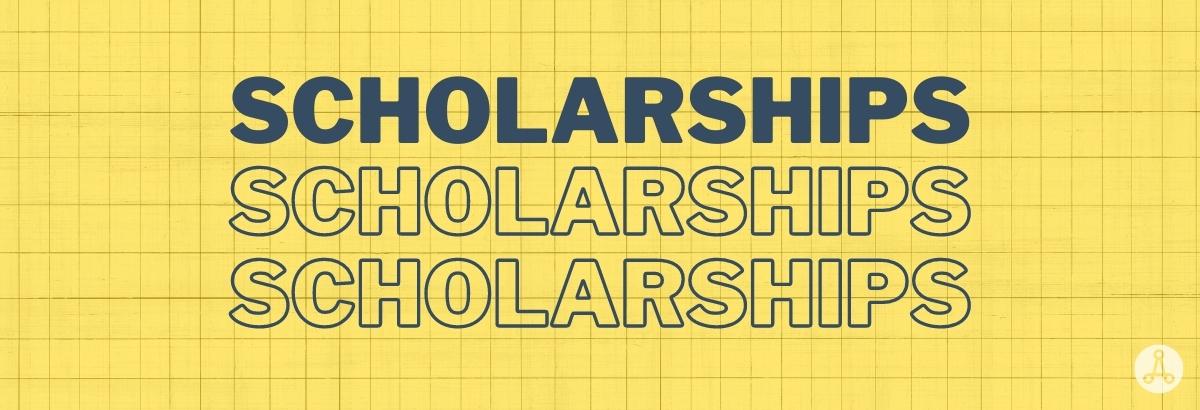Pursuing a degree in education is a noble and rewarding path, as it prepares individuals to shape the minds of future generations. However, obtaining a degree in education can be a significant financial burden for many. Fortunately, numerous scholarships for education majors can help alleviate these costs and make achieving a teaching degree more affordable.
In this comprehensive guide, we’ll explore everything you need to know about scholarships for education majors, the types of scholarships available, and how to secure funding to support your academic journey in education.
Why Scholarships for Education Majors Are Important
Education majors often face years of study, student teaching, and certification requirements, which can add to significant costs. Scholarships are a valuable resource for students in this field because they provide financial support without the need for repayment, unlike loans. Scholarships can cover tuition, books, and even living expenses, allowing students to focus on their studies and future careers.
Moreover, because teachers are in high demand, particularly in certain subject areas and geographic regions, many organizations and institutions offer scholarships specifically to encourage more students to pursue careers in education.
Types of Scholarships for Education Majors
There are a wide variety of scholarships available for education majors, each with its own set of eligibility criteria and focus. Understanding the different types of scholarships can help you identify the ones that best fit your goals and qualifications.
- Merit-Based Scholarships
Merit-based scholarships are awarded to students who demonstrate academic excellence, leadership skills, and a commitment to their field. These scholarships are often competitive and require a high GPA, strong standardized test scores, and evidence of extracurricular involvement, such as leadership roles, community service, or participation in teaching-related activities.
Key Criteria: High academic achievement, leadership qualities, and a passion for education.
Examples:
Phi Delta Kappa Prospective Educator Scholarship: Available to high school seniors or undergraduates pursuing a career in education.
James Madison Graduate Fellowship: For aspiring teachers of American history, covering up to $24,000 for graduate studies.
- Need-Based Scholarships
Need-based scholarships are designed to support students who demonstrate financial need. These scholarships take into account the applicant’s financial situation, including family income, assets, and other factors. They are often awarded through government programs, private foundations, or universities.
Key Criteria: Financial need, as determined by the Free Application for Federal Student Aid (FAFSA) or similar financial forms.
Examples:
Teacher Education Assistance for College and Higher Education (TEACH) Grant: Provides up to $4,000 per year to students who intend to teach in a high-need field in a low-income area.
Pell Grant: While not specific to education majors, this federal grant is based on financial need and can be used to fund a teaching degree.
- Subject-Specific Scholarships
Many scholarships are available for students who plan to teach in high-demand subject areas, such as STEM (Science, Technology, Engineering, and Math), special education, or bilingual education. These scholarships are often offered by government agencies, nonprofit organizations, and educational institutions to encourage more students to enter these critically important fields.
Key Criteria: Pursuing a teaching degree in a high-need subject area.
Examples:
Noyce Teacher Scholarship: Offers funding for STEM majors who commit to teaching in high-need school districts.
Special Education Scholarships: Organizations like the Council for Exceptional Children (CEC) offer scholarships for students pursuing careers in special education.
- Minority and Demographic-Specific Scholarships
There are many scholarships aimed at increasing diversity in the teaching profession by supporting students from underrepresented backgrounds, including minorities, women, and first-generation college students. These scholarships aim to foster a more diverse teaching workforce to better reflect the diverse student populations in classrooms today.
Key Criteria: Membership in an underrepresented group, along with academic merit or financial need.
Examples:
Hispanic Scholarship Fund: Offers scholarships for Latino students pursuing a teaching degree.
Thurgood Marshall College Fund: Provides scholarships for African American students attending Historically Black Colleges and Universities (HBCUs) and pursuing careers in education.
- Service-Based Scholarships
Service-based scholarships are awarded to students who commit to teaching in underserved or high-need areas, such as rural communities or inner-city schools, after graduation. These scholarships often come with service obligations, meaning recipients must teach for a set number of years in a designated area to avoid having the scholarship converted into a loan.
Key Criteria: Willingness to commit to teaching in a high-need or underserved area.
Examples:
TEACH Grant: Recipients must agree to teach in a high-need field at a low-income school for at least four years.
AmeriCorps Education Award: Provides funding for education majors who commit to working in underserved communities through the AmeriCorps program.
How to Secure Scholarships for Education Majors
Securing a scholarship for an education major involves careful planning and preparation. Follow these steps to increase your chances of receiving financial aid:
- Start Your Search Early
Scholarship opportunities can be highly competitive, so it’s important to start your search as early as possible—ideally, in your junior year of high school or the beginning of your college career. Use scholarship search engines like Fastweb, Scholarships.com, and Cappex to find opportunities tailored to education majors.
- Complete the FAFSA
For need-based scholarships and government grants, you must complete the Free Application for Federal Student Aid (FAFSA). This form is used to determine your eligibility for federal financial aid, including grants, loans, and work-study programs. Many university-based scholarships also require FAFSA information to assess financial need.
- Tailor Your Application
Each scholarship has its own unique set of criteria, so it’s important to tailor your application accordingly. Review the scholarship’s requirements carefully and make sure your application highlights your qualifications, achievements, and passion for teaching.
Personal Essay: Many scholarships require a personal essay. Use this opportunity to explain why you chose education as a career, what drives you to teach, and how you plan to make a positive impact in the classroom.
Letters of Recommendation: Secure strong letters of recommendation from teachers, professors, or mentors who can speak to your dedication to education and leadership potential.
- Focus on Academic Excellence
Many scholarships, especially merit-based ones, require a minimum GPA or standardized test scores. Maintain strong academic performance to ensure you meet these eligibility requirements. Consider taking advanced courses or gaining experience through tutoring or volunteer teaching programs to strengthen your application.
- Highlight Leadership and Community Involvement
Scholarship committees are often looking for well-rounded candidates who demonstrate leadership skills and a commitment to their community. Highlight any leadership roles you’ve taken in student organizations, teaching-related activities, or volunteer work. Show how these experiences have prepared you for a career in education.
- Apply to Multiple Scholarships
Don’t rely on a single scholarship to fund your education. Apply to as many scholarships as you qualify for to increase your chances of securing financial aid. Many smaller, local scholarships may have fewer applicants, giving you a better shot at receiving an award.
- Meet All Deadlines
Scholarship deadlines are strict, and late submissions are often not considered. Create a calendar to track application deadlines and give yourself plenty of time to gather the necessary materials, write essays, and request letters of recommendation.
Top Scholarships for Education Majors to Consider
Here are some of the most prominent scholarships for education majors that you should consider applying for:
TEACH Grant: Provides up to $4,000 per year to students who agree to teach in a high-need field in a low-income school.
Phi Delta Kappa Prospective Educator Scholarship: Awards scholarships to students pursuing a career in education.
Noyce Teacher Scholarship: For students majoring in STEM fields who commit to teaching in high-need schools.
Hispanic Scholarship Fund: Offers scholarships for Latino students pursuing education degrees.
James Madison Graduate Fellowship: Provides up to $24,000 for graduate students who plan to teach American history or government.
Conclusion
Scholarships for education majors are an invaluable resource for students looking to pursue a teaching career without being burdened by student debt. By exploring the various types of scholarships available, including merit-based, need-based, and service-based scholarships, and following the steps outlined in this guide, you can increase your chances of securing the financial assistance you need to achieve your educational goals.
Remember to start your search early, tailor your application to each scholarship, and apply to as many opportunities as possible. With determination and a well-prepared application, you can secure a scholarship that will help you embark on a rewarding career in education.
All the best!


